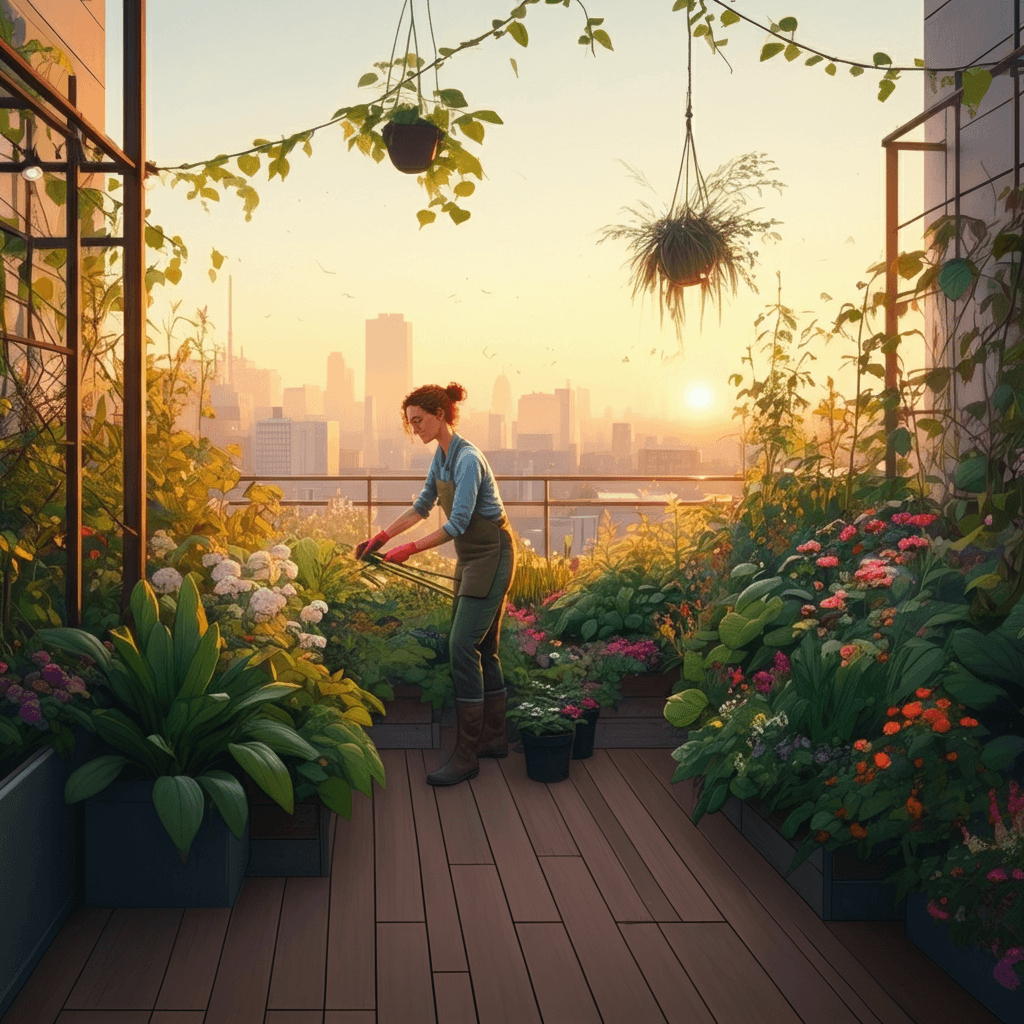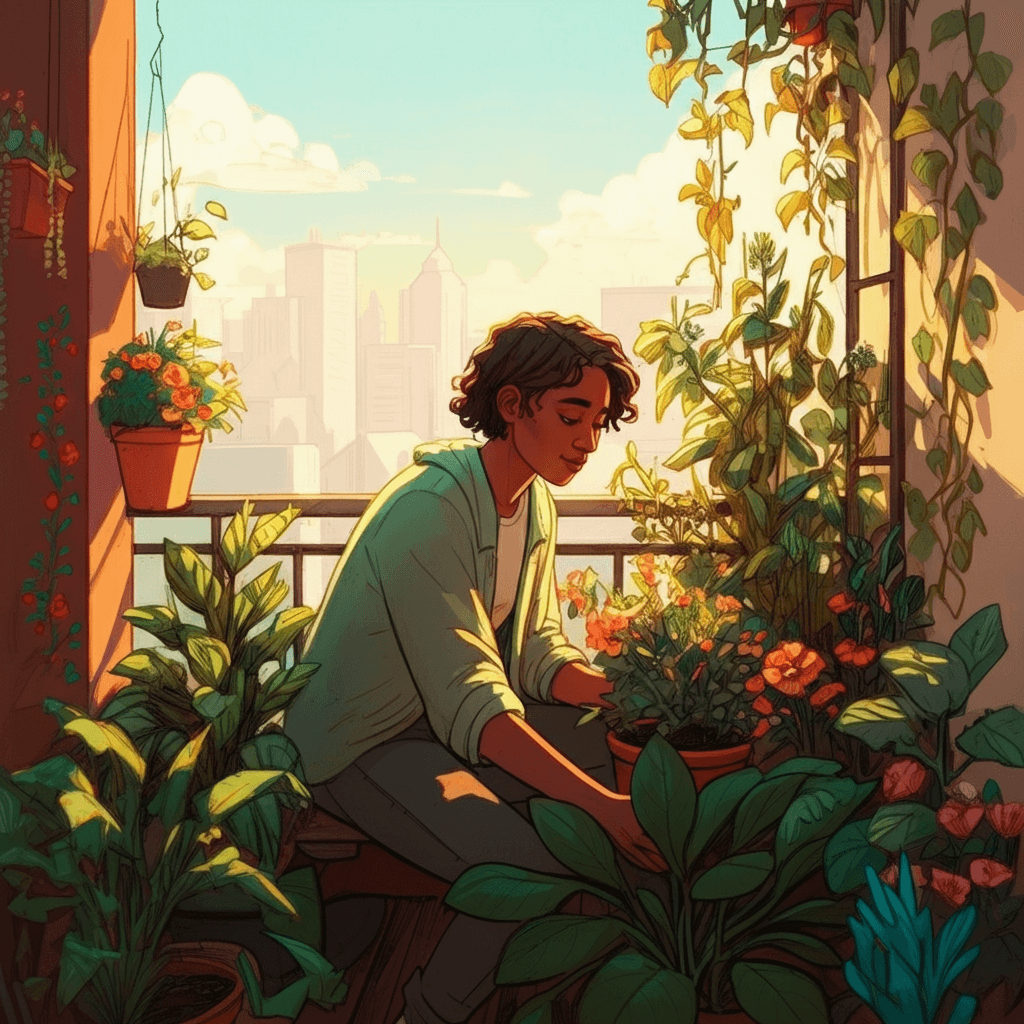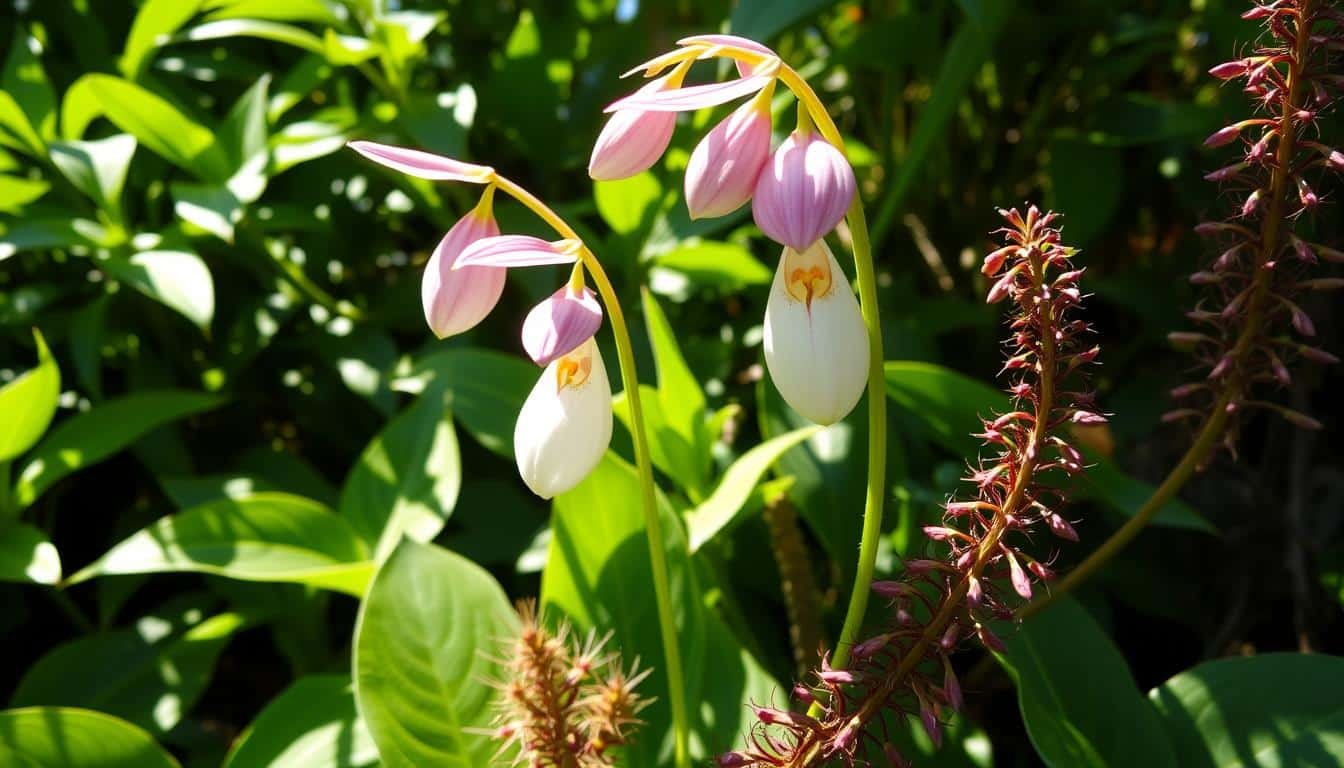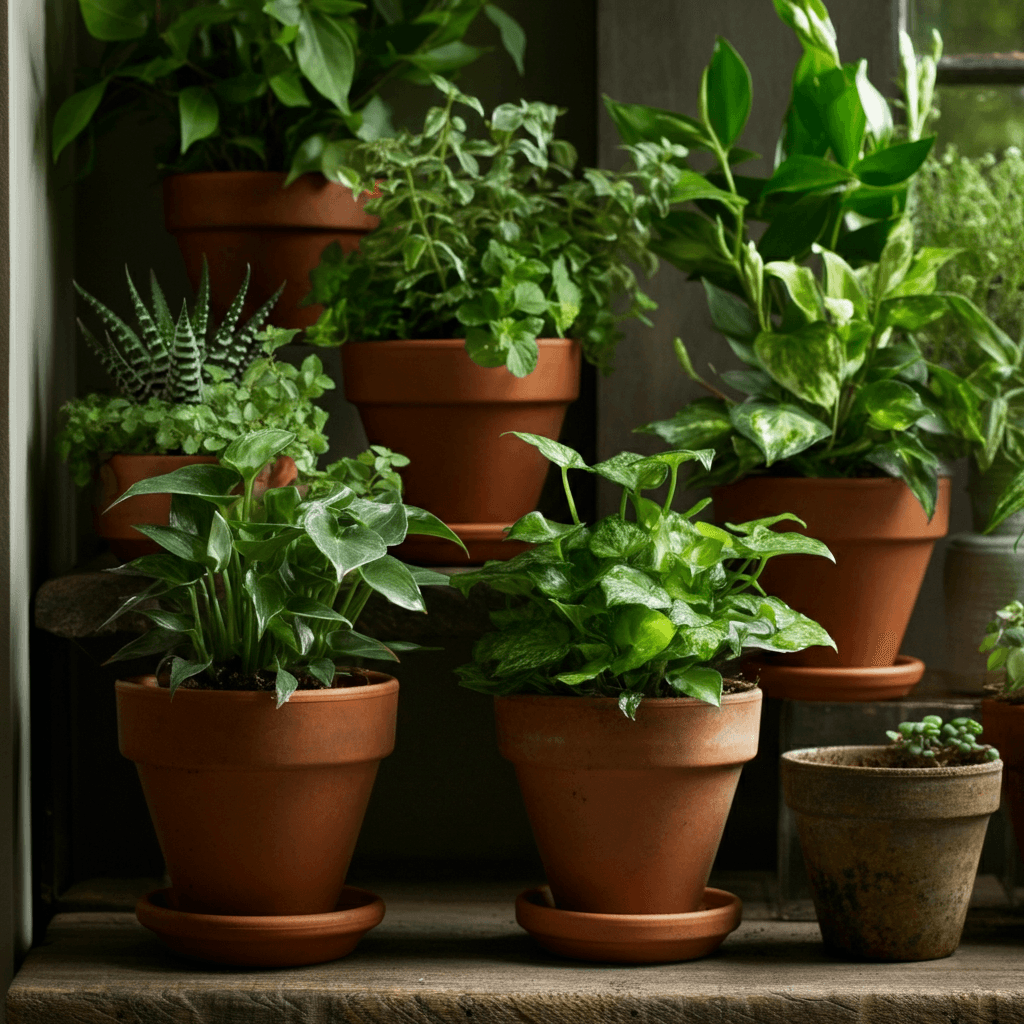Understanding Horticulture and Its Role in Modern Life
Defining Horticulture in Everyday Context
Horticulture is the art and science of growing plants for aesthetic and practical purposes. It encompasses various fields, including:
- Floriculture: Focuses on flowering and ornamental plants.
- Landscape Horticulture: Involves designing and maintaining outdoor green spaces.
- Pomology: The study of fruit cultivation.
- Olericulture: The cultivation of vegetables.
Everyday examples include nurturing houseplants, tending to vegetable gardens, or simply enjoying the beauty of a well-maintained park.
Impact on Urban and Rural Communities
Horticulture plays a significant role in both urban and rural settings, enhancing community life. In cities, community gardens serve as green sanctuaries, allowing residents to:
- Grow fresh produce.
- Foster community connections.
- Improve their surroundings.
Meanwhile, in rural areas, horticulture supports local economies by providing jobs and ensuring food security. For instance, farmers markets showcase fresh crops that directly benefit consumers and producers alike.
Benefits of Horticultural Integration
Integrating horticulture into our daily lives offers numerous advantages, such as:
- Improved Health: Access to fresh fruits and vegetables promotes better nutrition.
- Mental Well-being: Gardening activities can reduce stress and enhance mood.
- Environmental Benefits: Promoting biodiversity and fostering sustainable practices support a healthier planet.
By embracing horticulture, individuals not only connect with nature but also enrich their quality of life.
Common Ways to Interact with Horticulture in Your Daily Life

Growing Indoor Plants
One of the simplest and most enjoyable ways to interact with horticulture is by cultivating indoor plants. Adding houseplants, like succulents, ferns, and herbs, to your home not only beautifies your space but also allows you to connect with nature. For instance, tending to a Pothos or a peace lily can become a mindful routine, providing relaxation and satisfaction.
Maintaining Home Gardens
Transforming a small outdoor area into a home garden is another rewarding experience. Whether you have a backyard, patio, or balcony, you can grow vegetables, fruits, or flowers. Consider planting tomatoes or peppers for a fresh harvest! This not only supports personal sustainability but also enhances your culinary adventures.
Visiting Public Green Spaces
Public parks and botanical gardens offer rejuvenating escapes from daily life. Walking through these green spaces allows you to appreciate diverse plant life while providing opportunities for education and community events. Many people partake in workshops or volunteer days that spark connections with fellow gardening enthusiasts.
Consuming Fresh Produce
Incorporating fresh produce into your diet bridges the gap between horticulture and daily life. Shopping at farmers’ markets or participating in Community Supported Agriculture (CSA) programs ensures you’re getting the best seasonal offerings. Enjoying a salad made from homegrown tomatoes or fresh herbs brings an unparalleled joy and reinforces your connection to horticulture!
Therapeutic Benefits of Gardening and Plant Care
Continuing from the myriad ways to interact with horticulture, let’s delve into how gardening and plant care can substantially enhance our well-being.
Mental Health and Stress Reduction
Engaging in gardening provides a powerful emotional lift. The act of nurturing plants can help reduce cortisol levels, the hormone associated with stress. Whether it’s the joy of watching seeds sprout or simply taking time to breathe among your flowers, these activities create a sense of tranquility. For many, the garden becomes an escape—a personal sanctuary where worry fades away.
Physical Exercise and Motor Skills
Gardening is not just mentally beneficial; it’s also a fantastic physical workout! Activities like digging, planting, and weeding enhance motor skills and strength. You’ll find that spending time in the garden improves your endurance as your body becomes accustomed to varied movements. Plus, working outdoors promotes fresh air, sunlight, and the crucial Vitamin D for overall health.
Social Connection Through Community Gardens
Community gardens encourage socialization, providing the chance to meet like-minded individuals who share the same passion for plants. They serve as collaborative spaces where friendships bloom alongside flowers. By gardening together, you can share tips, recipes, and the joy of harvests, creating a strong sense of community and belonging. It’s an avenue to connect with others and foster relationships that can flourish as beautifully as the gardens themselves.
Indoor Plant Care and Home Horticulture
As we explore the therapeutic benefits of gardening, it’s essential to highlight indoor plant care and home horticulture, which provide a wonderful way to bring nature indoors.
Choosing the Right Houseplants
Selecting the right houseplants can significantly enhance your indoor environment. Begin by considering factors such as light conditions and your level of maintenance commitment. Here are some popular choices:
- Succulents: Echeveria and Jade are perfect for beginners, needing minimal water.
- Ferns: Boston and Maidenhair ferns add lush greenery and thrive in humidity.
- Tropical plants: Philodendrons and Pothos offer vibrant foliage and enhance air quality.
Cultivating an Indoor Garden
Creating an indoor garden is a fulfilling project! You can start with a windowsill herb garden or place potted plants in groups to make a stunning display. Don’t hesitate to experiment with different plant arrangements to find what suits your style best.
Houseplant Benefits
Houseplants carry numerous benefits for both mind and body. They help purify the air by reducing pollutants, improve humidity levels, and enhance overall well-being. Research shows that having plants indoors can boost mood, increase focus, and reduce stress, transforming your living space into a serene retreat. By engaging with indoor horticulture, you cultivate not just plants but also a healthier, happier home.
Edible Landscaping and Kitchen Gardens
Building on the therapeutic benefits of gardening, let’s explore the delightful world of edible landscaping and kitchen gardens, which allows you to enjoy beautiful spaces while growing your own food.
Growing Your Own Food
Growing your own food is not just rewarding; it’s a delightful way to connect with nature. Whether you have a sprawling backyard or a modest balcony, there are numerous options for cultivating delicious crops.
- Herbs like basil and mint are perfect for pots and add flavors to your meals.
- Vegetables such as tomatoes, peppers, and lettuce can thrive even in small spaces.Consider planting native or perennial varieties that require less maintenance and yield year after year.
Sustainable Living Practices
Incorporating sustainable practices into your kitchen garden boosts your impact on the environment. Composting kitchen scraps enriches the soil while reducing waste. Additionally, using organic methods can help minimize pesticides and promote a healthier ecosystem.
Seasonal Planting Guide
Understanding when to plant is crucial for a bountiful harvest. A simple seasonal planting guide can help:
- Spring: Start with leafy greens like spinach and kale.
- Summer: Plant heat-loving crops like cucumbers and squash.
- Fall: Use the cooler weather to grow root vegetables like carrots and beets.By following these guidelines, your edible garden can provide fresh produce throughout the year, making your meals nutritious and delightful!
Horticultural Practices for Urban Dwellers
Transitioning from the joys of edible landscaping, let’s explore how urban dwellers can engage with horticulture despite limited space.
Balcony or Rooftop Gardening
For city residents, balcony or rooftop gardening is a fantastic way to enjoy fresh air while growing food. These small green spaces can be transformed into lush gardens by utilizing pots and vertical containers.
- Herbs such as basil and parsley thrive in smaller spaces and are perfect for use in cooking.
- Cherry tomatoes and radishes grow well in containers, providing rewarding harvests.
Indoor Plant Cultivation
Bringing nature inside improves air quality and adds vibrancy to your living space.
- Choose low-maintenance houseplants like snake plants and Pothos, which thrive in various light conditions.
- Establish a routine for watering and monitoring plant health—it’s a soothing activity!
Community Gardens
Community gardens offer the perfect opportunity to grow food while fostering connections. By joining one, you can work alongside others who share a passion for gardening. These gardens often provide resources and knowledge for budding gardeners, plus the joy of sharing a bountiful harvest.
Urban Farming Initiatives
Cities increasingly support urban farming through initiatives that encourage sustainable practices. Participating in these programs not only promotes local food production but also strengthens community bonds. You’ll find that urban farming cultivates both crops and camaraderie, making city living richer and greener!
Connecting with Nature Through Public Gardens
Transitioning from urban gardening, public gardens play a crucial role in bridging the connection between individuals and the natural world.
Botanical Gardens as Learning Centers
Botanical gardens offer invaluable opportunities for education and exploration. They showcase diverse plant species, allowing visitors to learn about various ecosystems. For example, wandering through a tropical garden can spark interest in conservation efforts. Many botanical gardens provide workshops on plant care, encouraging hands-on learning and fostering a deeper appreciation for horticulture.
Community Events and Programs
Community events hosted in public gardens are ideal for connecting with fellow nature enthusiasts. These gatherings often include activities like gardening workshops, guided nature walks, and family-friendly events. Participating in these programs can lead to new friendships and valuable knowledge. Imagine a weekend spent sowing seeds with your neighbors—it’s a great way to contribute to the local environment while building community ties!
Seasonal Displays and Exhibitions
Visiting public gardens throughout the seasons is truly a treat. Each season brings unique displays, from vibrant blooms in spring to autumn’s colorful foliage. Seasonal exhibitions often highlight specific plant families or themes, allowing visitors to experience the cycle of nature firsthand. Engaging with these changing landscapes reminds us of the beauty and diversity that the natural world offers, deepening our connection to it.
Sustainable Gardening Methods and Environmental Impact
Continuing our journey through horticulture, it’s essential to focus on sustainable gardening methods that not only benefit our gardens but also have significant positive effects on the environment.
Eco-friendly Gardening Essentials
Starting with eco-friendly gardening essentials can greatly enhance your gardening experience. Incorporate practices such as:
- Composting: This enriches your soil with organic material and reduces waste.
- Rainwater Harvesting: Collecting rainwater for irrigation conserves resources and reduces the need for municipal water.
- Native Plant Cultivation: Native plants support local wildlife and require less maintenance, making them an ideal choice.
The Positive Impact of Sustainable Horticulture
Sustainable horticulture plays a vital role in addressing environmental issues. By engaging in these practices, individuals can:
- Reduce Carbon Footprint: Plants naturally absorb carbon dioxide, helping to combat climate change.
- Support Biodiversity: Diverse gardens attract pollinators and other beneficial organisms, enriching local ecosystems.
Sustainable Gardening Practices
Integrating sustainable gardening practices into your daily routine leads to healthier gardens and ecosystems. Consider:
- Permaculture Design: A strategy that mimics natural ecosystems, creating self-sustaining gardens.
- Organic Pest Control: Using natural solutions to manage pests helps maintain a balanced garden environment.
By adopting these sustainable methods, we can cultivate not just plants, but a healthier planet for future generations.
Professional and Educational Opportunities in Horticulture
As we delve deeper into the world of horticulture, it’s essential to explore the professional and educational opportunities available in this flourishing field.
Career Paths in Horticulture
The career opportunities in horticulture are diverse and rewarding. Whether you’re passionate about growing plants or designing landscapes, there are paths for everyone. Some prominent career options include:
- Landscape Designers: They create beautiful outdoor spaces that enhance the environment.
- Horticulturists: These professionals focus on plant cultivation for a variety of purposes, including food production and conservation.
- Urban Farmers: Contributing to local food production in urban areas, urban farmers often engage in sustainable practices.
Educational Programs and Certifications
Pursuing education in horticulture can start at various levels, including:
- Certificates for specific skills or areas of knowledge.
- Associate’s and Bachelor’s Degrees in horticulture or related fields.Many community colleges and universities offer programs that combine hands-on experience with theoretical knowledge, preparing students for real-world challenges.
Networking Opportunities
Networking plays a crucial role in advancing a career in horticulture. Joining professional organizations, attending workshops, and participating in local gardening clubs can open doors. For example, engaging with the DeKalb Area Garden Club provides both community support and access to resources that can further your horticultural journey. Connecting with other green enthusiasts fosters collaboration, leading to new opportunities and shared learning experiences.
Conclusion
As we wrap up our exploration of horticulture, it’s clear that this vibrant field deeply enriches our lives and communities.
Summary of Key Points
Throughout this journey, we’ve learned that:
- Horticulture is Everywhere: It encompasses aspects from indoor plants to community gardens and contributes significantly to urban and rural life.
- Health Benefits: Engaging with horticulture can improve mental health, reduce stress, and enhance physical well-being.
- Environmental Impact: Sustainable practices in gardening, like composting and native plant cultivation, support biodiversity and combat climate change.
The Importance of Horticulture in Daily Life
Incorporating horticulture into daily routines creates a stronger bond with nature. Whether it’s growing your own food, cultivating indoor plants, or enjoying the beauty of public gardens, each interaction fosters well-being and mindfulness.
For instance, imagine unwinding in a room adorned with flowering houseplants or sipping fresh tea brewed with herbs you’ve grown yourself—these simple pleasures remind us of our connection to the earth. By embracing horticulture, we not only nurture plants but also cultivate healthier, happier lifestyles that can contribute to a more sustainable future for all.
FAQ
As we conclude our exploration of horticulture, it’s natural to have some questions about this enriching field. Let’s address some common inquiries that many people have.
Common Questions about Horticulture
1. How do people interact with horticulture in their daily lives?
Many individuals engage with horticulture by:
- Growing indoor plants for aesthetic appeal and air purification.
- Tending to home gardens where they cultivate vegetables, fruits, or flowers.
- Participating in community gardens, which foster both social interaction and food production.
2. What are the benefits of horticulture for individuals and communities?
Horticulture provides numerous benefits, such as:
- Enhancing nutrition through access to fresh produce.
- Improving mental health by offering therapeutic gardening experiences.
- Reducing stress and promoting physical activity.
3. How can urban dwellers engage in horticulture with limited space?
Urban gardening is doable even in small spaces! Consider:
- Using container gardens on balconies.
- Utilizing vertical gardening techniques to save space.
- Participating in community gardens for shared growing opportunities.
4. What career opportunities exist in horticulture?
Career paths in horticulture are diverse and include:
- Landscape design, urban agriculture, and horticultural education.With various educational programs available, you can find a path that suits your passion for plants and nature.




